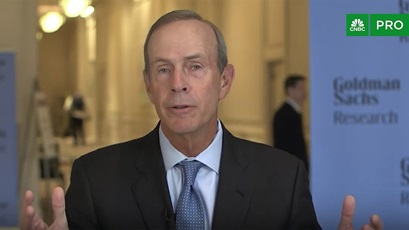alternative fuels
biofuels can help maritime industry lower carbon intensity
2 min read | november 08, 2024
At Penjuru Terminal in Singapore, Chevron offers biofuels to maritime customers.
Hui Ling Chern is excited about how biofuels can help lower the lifecycle carbon intensity of the maritime industry.
Hui Ling is a Singapore-based Chevron biofuels trader. And she’s a proud member of the team that is working to help make these alternatives to traditional fuels a viable option for the shipping industry.
“It takes a committed team with strong global collaboration,” Hui Ling said. “This winning mindset has simplified decision-making.” Now her team’s work can help companies meet International Maritime Organization (IMO) guidelines for reducing greenhouse gas emissions.
why it matters
Global greenhouse gas emissions hit 57.4 billion metric tons of CO2 equivalent emissions in 2022. International shipping accounted for 2% of global energy-related CO2 emissions in 2022.
Since 2023, shipowners have had to comply with new IMO guidelines meant to lower the industry’s greenhouse gas emissions. Biofuels can help them reach that goal.
These fuels are appealing because they:
- Are lower carbon intensity fuels.
- Are available today.
- Require minimal or no engine modifications.
more on that
Biofuels are fuels derived from organic matter such as used vegetable oils, wood, and plant and algae sources. These sources are collectively termed biomass.
And as drop-in fuels, they can replace petroleum-based fuels with few, if any, changes to an engine.
“It’s really important for fuel suppliers to be working to provide shipowners with a solution they can use now to lower their fleets’ carbon intensity,” Hui Ling said. “Biofuels can help meet those needs today.”
reaching milestones
Chevron is working to increase the use of biofuels in the maritime sector. And it has hit several milestones in the past two years, including:
- Becoming the No. 2 marine biofuels supplier in Singapore in 2023.
- Securing term contracts to supply biofuels to several top global container lines.
- Working closely with the Global Centre for Maritime Decarbonisation in Singapore to test these fuels in real-world conditions.
- Being certified by the International Sustainability and Carbon Certification organization.
Chevron can now supply marine biofuels in U.S. ports.

The team that’s making biofuels happen in Singapore. Front row, from left: Hui Ling Chern, Karimi Nayab, Norazmi Ayob, and Adeline Tan. Back row, from left: Adrian Ong, Boon Hui Tan, Vignesh Maheantharan, and Danial Rosli.
looking to the future
There is plenty of opportunity for more success in the maritime industry.
In Singapore, more than 4 million tons of fuel have been sold each month in 2024. The total was more than 4.5 million tons in August 2024. Biofuels sales totaled 68,000 tons in August, meaning there is a lot of room to grow.
“We’re excited about growing volumes across ports, adding different feedstocks and working with shipowners on achieving their lower carbon intensity goals,” Hui Ling said. “Our Fuels, Lubricants and Shipping teams will continue to work across the globe with our strategic allies and customers.”
topics covered
related content
-

 chevron CEO discusses the future of energy
chevron CEO discusses the future of energyemissions solutionsjanuary 20, 2025
-

 novel ideas, established companies key to advancing lower carbon tech
novel ideas, established companies key to advancing lower carbon techemissions solutionsjanuary 14, 2025
-

 chevron CEO talks growing production, efficient spending
chevron CEO talks growing production, efficient spendingemissions solutionsdecember 18, 2024
-

 hydrogen project tour highlights expertise, role in energy market
hydrogen project tour highlights expertise, role in energy marketalternative fuelsnovember 04, 2024
chevron email updates
Subscribe to our newsletter to receive news and updates.



